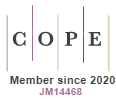Territory, Work and Health. Socio-Environmental Repercussions of Lifestyle in Two Communities of the Sustainable Development Reserve of Tupé, Manaus, Amazonas
DOI:
https://doi.org/10.5585/rgss.v7i2.12804Keywords:
Social Environmental Vulnerability, Health Management, LifestyleAbstract
The text analyzes the socioenvironmental and epidemiological conditions of the adult population of two riverside communities of the Tupé Sustainable Development Reserve, Manaus, Amazonas (Tupé SDR), comparing levels of incidence of Diabetes Mellitus in two distinct population groups, placed at opposite points of socioeconomic development - the Tupé SDR and the city of Manaus. This is a case study based on field research and the use of statistics provided by the Brazilian Ministry of Health and Brazilian Institute of Geography and Statistics in the exploratory, descriptive and cross-sectional study using techniques of multi-group ecological analysis and ethnographic observation to examine the influence of socioenvironmental conditions on the occurrence rates of Diabetes Mellitus. The analysis suggests that social determinants of Diabetes Mellitus, such as sedentary life and obesity, are influenced by the typical lifestyle of the analyzed communities, affecting much more women than men and the nonhomogeneous form of the territorial distribution of the disease would require adjustments in the plans of Management of Public Health Policies. Thus, the replacement of the empirical categories man / woman, based on the biological difference between the sexes, by the analytical category of gender, which supposes the existence of power relations between the sexes, it also implies to consider in social and environmental studies and collective health the social constructions of identity underlying the practices that incorporate the material conditions of life and social existence in the territory.Downloads
Downloads
Published
How to Cite
Issue
Section
License
Copyright (c) 2019 Revista de Gestão em Sistemas de Saúde – RGSS

This work is licensed under a Creative Commons Attribution-NonCommercial-NoDerivatives 4.0 International License.
Autores mantém os direitos autorais e concedem à revista o direito de primeira publicação, com o trabalho simultaneamente licenciado sob a Creative Commons Atribuição - Não comercial - Compartilhar igual 4.0 Internacional que permite o compartilhamento do trabalho com reconhecimento da autoria e publicação inicial nesta revista.
Autores têm autorização para assumir contratos adicionais separadamente, para distribuição não-exclusiva da versão do trabalho publicada nesta revista (ex.: publicar em repositório institucional ou como capítulo de livro), com reconhecimento de autoria e publicação inicial nesta revista.
Autores têm permissão e são estimulados a publicar e distribuir seu trabalho online (ex.: em repositórios institucionais ou na sua página pessoal) a qualquer ponto antes ou durante o processo editorial, já que isso pode gerar alterações produtivas, bem como aumentar o impacto e a citação do trabalho publicado (Veja O Efeito do Acesso Livre) em http://opcit.eprints.org/oacitation-biblio.html


